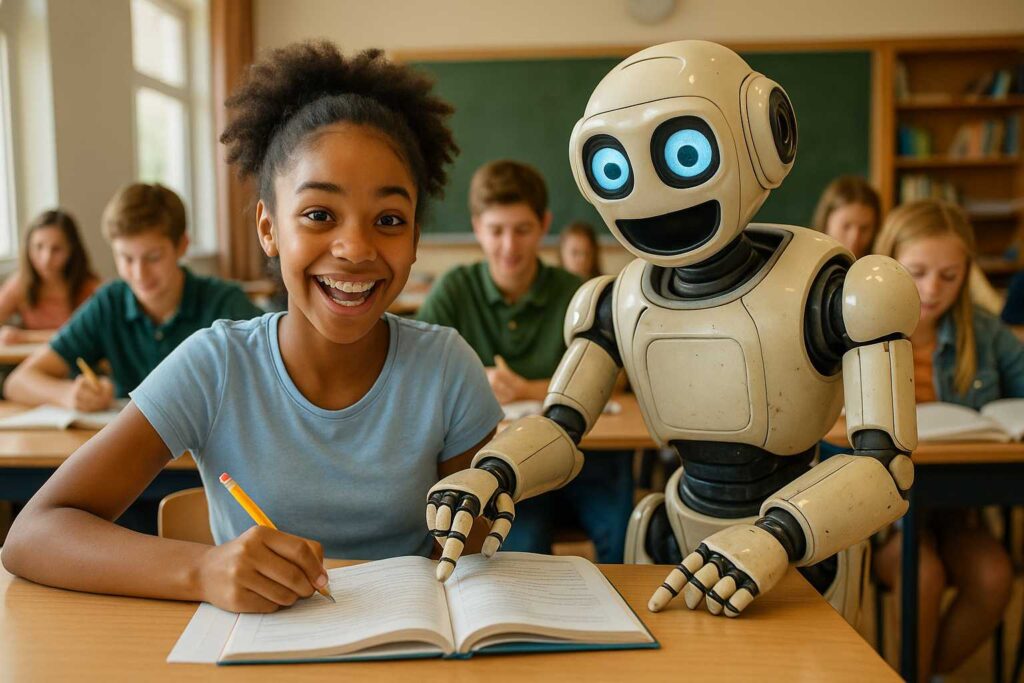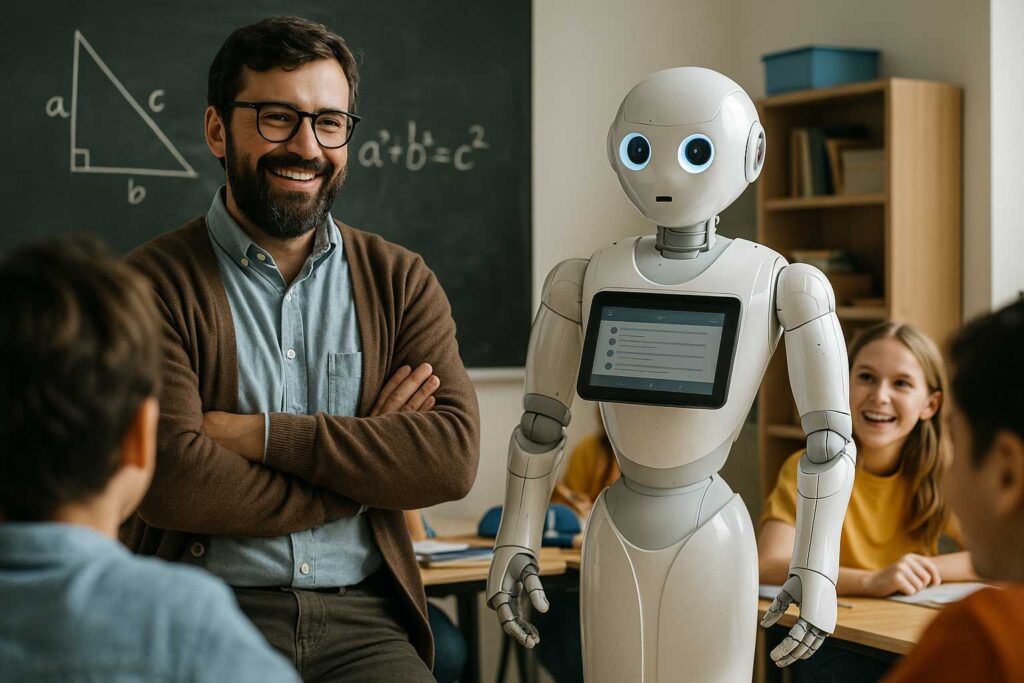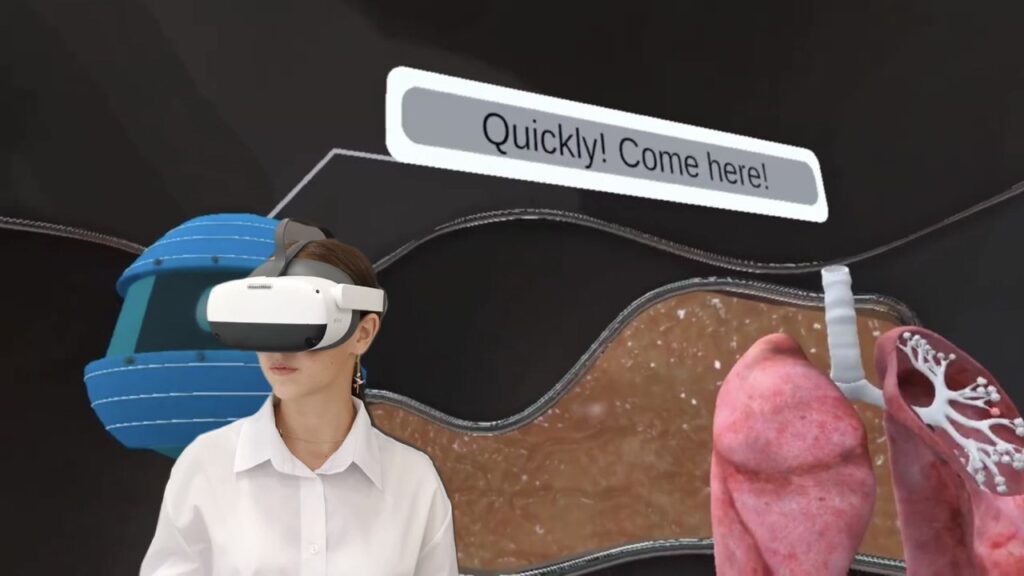

Imagine a classroom where every single student has a personal learning coach—someone who tracks their progress in real time, pinpoints every misconception, and serves up just-right practice on demand. That’s the promise of the modern AI tutor. Far from replacing human educators, these digital assistants are poised to offload the most repetitive tasks so teachers can focus on creativity, mentorship, and the kind of project-based learning that puts a sparkle in students’ eyes.

Definition: A cloud-based, algorithm-driven teaching aide that sits beside each learner (virtually, of course) and delivers personalized explanations, quizzes, and feedback.
Core Function: Act as a one-to-one assistant—something only the most elite, high-budget schools could even dream of hiring in human form.
Real-Time Adaptation: As the student answers questions, the AI updates its model, continually adjusting difficulty, pacing, and content.
Think of it as Siri or ChatGPT – only trained to master your district’s math, science, and language-arts standards, complete with instant progress dashboards for teachers.

Goodbye to Endless Repetition
Explaining the same diagram five times a day? An AI tutor handles initial instruction and basic remediation, freeing the teacher for deeper discussions and lab work.
Hello to Creative Teaching
When algorithms grade daily drills, educators can design VR-powered STEM lab projects, organize debate panels, or coach presentation skills—tasks that require human nuance.
Equity at Scale
One human tutor per child is financially impossible for most public schools. AI makes individualized support realistic, even in under-resourced districts.
Stronger Classroom Relationships
With data dashboards flagging who’s stuck and why, teachers spend less time guessing and more time offering targeted encouragement—exactly where it’s needed most.

If content delivery alone killed the teaching profession, textbooks and YouTube would have done it years ago. Students still crave human connection, inspiration, and real-world context. AI tutors simply shoulder the grunt work—grading vocab drills, auto-generating practice sets—so educators can lean into the roles only humans fill:
Motivator
Project manager
Empathy engine
Career coach
| Classroom Need | Human Teacher | AI Tutor | Bonus Tech |
|---|---|---|---|
| Daily micro-quizzes | Oversees | Generates & grades | LMS analytics |
| Explaining tough concepts | Supplements | Offers on-demand clarifications | Interactive VR biology or VR physics modules |
| Group projects | Facilitates teamwork, soft skills | Tracks individual contributions | VR classroom spaces for collaboration |
| Parent reports | Curates highlights | Auto-builds data visualizations | Secure parent portal |

Notice how VR tools dovetail with AI: while the tutor personalizes content, a VR chemistry simulation immerses students in hands-on inquiry—no toxic spills required.
Start Small: Pilot a free or low-cost adaptive-learning platform in one unit.
Review the Data: Compare quiz scores and engagement before and after.
Blend, Don’t Replace: Use AI output as a launching pad for in-class discussions or VR lab extensions.
Stay Transparent: Let students and parents know the AI’s role; emphasize data privacy and teacher oversight.
AI tutors aren’t a sci-fi fantasy or a teacher’s worst nightmare—they’re the extra set of hands we’ve always needed. By automating routine instruction and offering pinpoint feedback, they grant educators the freedom to foster creativity, community, and critical thinking. In short, they turn good classrooms into great ones—and that’s something worth welcoming, not fearing.
Frequently Asked
XReady Lab offers the largest K–12 STEM VR and Web/PC library with an AI Tutor. The packages include biology, physics, chemistry, and math, covering topics from primary school through high school.
All content is designed to align with major curricula and deliver engaging, interactive learning experiences. New simulations are added monthly.
XReady Lab’s simulations are aligned with IB, Cambridge IGCSE, AS & A Levels, NGSS, College Board, Common Core, TEKS, CBSE, BNCC, the National Curriculum for England, the Italian secondary school curriculum (Scuola Secondaria), and the National Curriculum of the Netherlands (VMBO, HAVO, VWO).
Career Packs are VR simulation bundles that let students explore STEM careers in practice. Current packs include: Future Doctor, Future Nurse, Future Engineer, Future HVAC Engineer, Future Biotechnologist, Future Astronomer, Future Neuroscientist.
New Career Packs are added regularly.
XReady Lab Superhuman AI Tutor works like a real tutor, guiding students step by step instead of giving ready-made answers. It focuses on reasoning, problem-solving, and explaining mistakes to build real understanding.
Created by international STEM Olympiad winners and coaches, it helps prepare for exams, increases memory retention by 40%, and works in real time in both VR and desktop formats with an internet connection.
XReady Lab packages include complimentary teacher training and ready-to-use Lesson Plans and Engagement Playbooks to support engaging lessons.
They guide teachers in integrating VR/web/PC simulations with clear objectives, step-by-step instructions, classroom management strategies, reflection activities, assessments, and technical checklists — helping teachers run effective lessons beyond the simulations themselves.
Simply fill out the free demo form here to get access to demo XReady Lab simulations.
We start with consultation: our team helps plan the VR classroom for your school. You need internet access and a suitable room — allocate about 5 x 5 feet (1.5 x 1.5 m) per student. One headset per two students works well.
Devices and licenses: schools can use existing Meta Quest or Pico devices and purchase licenses, or we can offer discounted devices or a turnkey solution with pre-installed content.
After purchase, we guide device setup and content installation and provide teacher training.
Teachers learn how to run VR lessons using Lesson Plans and Engagement Playbooks, manage screen casting and paired learning, and keep students engaged.
Ongoing support is always available.
VR lessons typically last 5–15 minutes, depending on the simulation, with a recommended class size of up to 20 students. Screen casting is supported and compatible with selected teacher management systems, allowing teachers to launch simulations remotely, monitor progress, and view all devices during lessons.
Teachers are supported with Lesson Plans and Engagement Playbooks that include learning objectives, step-by-step lesson flow, classroom scenarios, reflection questions, practical assignments, and assessment guidance.
XReady Lab is available worldwide and supports 75+ languages. Today, it is used by 800+ schools and 150,000+ students across the globe.
XReady Lab simulations are offered through flexible licensing packages, depending on the format and subjects you need:
If you already have VR headsets, you only purchase licenses. If not, we can also help you choose the most cost-effective setup and licensing model for your school or family.
XReady Lab works with the most widely used standalone VR headsets in schools:
All supported devices are standalone (no PC required), making them easy to deploy and manage in a school environment.
Yes. XReady Lab supports open ecosystems, not closed platforms. Schools can freely use third-party VR content alongside XReady Lab on Meta Quest and PICO headsets.
We encourage schools to diversify their VR classrooms with high-quality educational apps and can recommend tested solutions, helping expand learning beyond STEM into subjects like design, history, environmental studies, and soft skills.
XReady Lab follows school VR safety best practices. VR is recommended for students 10–12+, with short 5–15 minute sessions and seated or safe-zone use under teacher supervision, supported by screen casting.
First-time users adapt gradually. Students with medical conditions require parental and school approval, and hygiene is ensured through regular headset cleaning and replaceable face covers.
Families can access XReady Lab simulations at home in two ways: